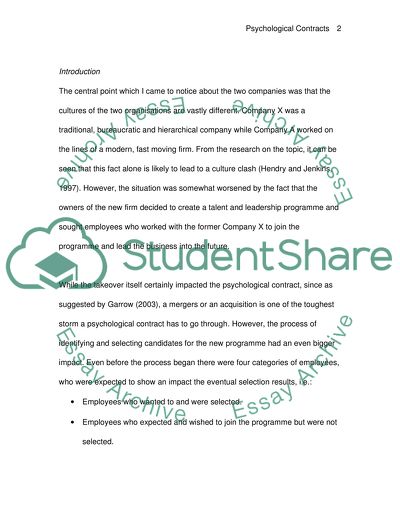Cite this document
(Psychological Contracts in Organizations Essay Example | Topics and Well Written Essays - 2171 words, n.d.)
Psychological Contracts in Organizations Essay Example | Topics and Well Written Essays - 2171 words. Retrieved from https://studentshare.org/psychology/1538342-using-your-placementwork-experience-you-are-required-to-critically-analyse-the-nature-of-the-psychological-contract-within-the-workplace-and-use-2-3-other-the
Psychological Contracts in Organizations Essay Example | Topics and Well Written Essays - 2171 words. Retrieved from https://studentshare.org/psychology/1538342-using-your-placementwork-experience-you-are-required-to-critically-analyse-the-nature-of-the-psychological-contract-within-the-workplace-and-use-2-3-other-the
(Psychological Contracts in Organizations Essay Example | Topics and Well Written Essays - 2171 Words)
Psychological Contracts in Organizations Essay Example | Topics and Well Written Essays - 2171 Words. https://studentshare.org/psychology/1538342-using-your-placementwork-experience-you-are-required-to-critically-analyse-the-nature-of-the-psychological-contract-within-the-workplace-and-use-2-3-other-the.
Psychological Contracts in Organizations Essay Example | Topics and Well Written Essays - 2171 Words. https://studentshare.org/psychology/1538342-using-your-placementwork-experience-you-are-required-to-critically-analyse-the-nature-of-the-psychological-contract-within-the-workplace-and-use-2-3-other-the.
“Psychological Contracts in Organizations Essay Example | Topics and Well Written Essays - 2171 Words”, n.d. https://studentshare.org/psychology/1538342-using-your-placementwork-experience-you-are-required-to-critically-analyse-the-nature-of-the-psychological-contract-within-the-workplace-and-use-2-3-other-the.


